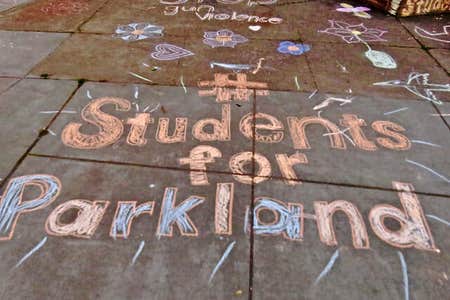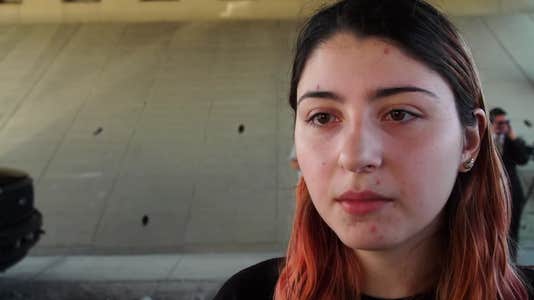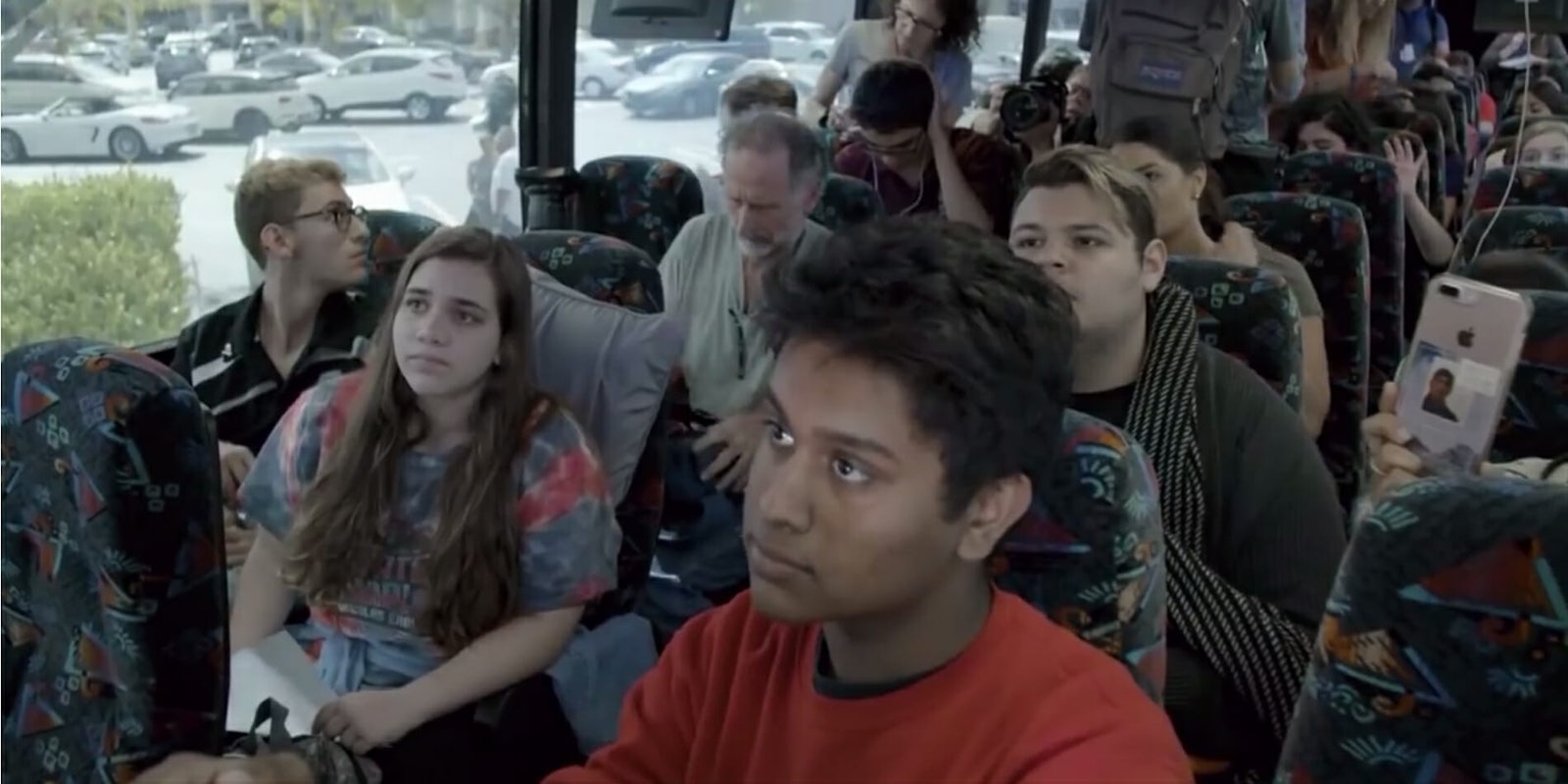Opinion
One a week later, the Parkland high school shooting is still top of mind for the American public. And those who find it the most impossible to put it behind them are the ones working the hardest to ensure another deadly event never happens like this again.
Survivors and parents of the deceased met with President Donald Trump on Wednesday, begging him to take a serious stance in support of gun control. Later that night, a CNN town hall featured students and parents from the high school taking on Florida Sen. Marco Rubio’s gun policies and attitudes. Raw, heartbreaking, and rage-inducing, both confrontations are starch reminders that Parkland will go down in history as one of the country’s worst school shootings.
To Generation Z, though, it’s particularly cutting: It joins Sandy Hook as one of the deadliest school shootings to impact the generation to date. And while policy changes may be far off, Parkland’s teens are changing how we think about national tragedies for one simple reason: Many survivors grew up navigating social media.
In crisis, ‘digital natives’ turn to the internet

Journalist David Klion first pointed out that Parkland has felt more intense than other school shootings because of survivors’ relationship with Twitter, Snapchat, and Facebook. He calls the students “digital natives,” arguing that they grew up with a social media-infused internet that contrasted from the clunky World Wide Web of the late 1990s.
“What Twitter and other social media does at its best is give voice to the voiceless,” Kilon wrote in a Twitter thread. “Imagine if multiple Columbine survivors had developed powerful national platforms even before the shooting.”
https://twitter.com/DavidKlion/status/965611231708110848
https://twitter.com/DavidKlion/status/965611967036710912
https://twitter.com/DavidKlion/status/965612553199026176
Klion is correct. Unlike millennials, who initially grew up without social media and learned how to cultivate an online presence over time, today’s teens and young adults have lived with the internet all their lives. Most are consistently plugged into social media: 91 percent of teens ages 15 to 18 use social media to connect with friends, 88 percent use platforms similar to Facebook daily, and 83 percent agree “they couldn’t live without the internet,” a report from University Business reveals.
Today’s high school students aren’t just “surfing” the internet, either. Twitter and Instagram are where teens go to connect with each other, so they’re naturally well-versed in how certain content goes viral.
Take a look at 17-year-old Maxine Marcus, the CEO for the Ambassadors Company, which consults with businesses that want to reach Generation Z. She stresses that Gen Z incredibly important for social media apps because her peers will “champion your product and share it with our friends.”
“We’ve been raised with technology, so working with tech has become second nature to most of us,” Marcus explained to Forbes late last year. “There is also a major viral power with Gen Z because that’s how we communicate—on social media. That’s how we position ourselves and portray ourselves to the world.”
The teens who spoke at CNN’s town hall on Wednesday understood this well when they took Sen. Marco Rubio to task—partially because they know pushing back against Republicans will go viral. When conservative pundit Tomi Lahren attacked the school’s survivors, they fought back and blew the internet up. And after one student reportedly criticized Trump’s tweet about the shooting, his response sparked a viral storm.
This worked in the students’ favor last night as well. Sound bites from the CNN town hall quickly spread across Twitter after survivors pressed Sen. Marco Rubio on his gun control stances, eventually leading the senator to break with the Republican Party on several issues, including regulating enormous magazine clip sizes.
“I have traditionally not supported looking at magazine clip size and after this and some of the details I have learned about it, I am reconsidering that position and I’ll tell you why,” Rubio said during the televised event. “Because while it may not prevent an attack, it may save lives in an attack.”
Many on Twitter were quick to point out that the teens pressed harder on a politician to answer uncomfortable questions than the actual press does.
https://twitter.com/charles_kinbote/status/966537217425465344
https://twitter.com/chriswweller/status/966728532025061376
https://twitter.com/SidizenKane/status/966525066216435712
How we view school shootings is changing

While today’s high school students are facing the same school shooting threat that the last generation grappled with, their stories are being shared differently. Americans no longer hear about school shootings first through CNN, NBC, or the New York Times. The survivors behind these shootings are now popping up on social media timelines, Snapchat stories, and Facebook posts. In some cases, students are even serving as gonzo journalists, reporting the news as it happens to their peers—and themselves.
Parkland may feel like an outlier right now, but if horrific shooting events continue to happen, American teens in these traumatic situations will continue to turn to Snapchat, Instagram, and Twitter. And it’s these teens that will force the American public to come face-to-face with the on-the-scene terror and devastating loss that comes with an active shooter on a school campus.
Political analysts wonder if Parkland’s students will change federal and state laws to tighten gun control in the U.S. Unfortunately, they probably won’t. But Parkland is a paradigm shift in how we think about school shootings. And if American school shootings continue to happen in high numbers, then Parkland is only the beginning for Generation Z.


